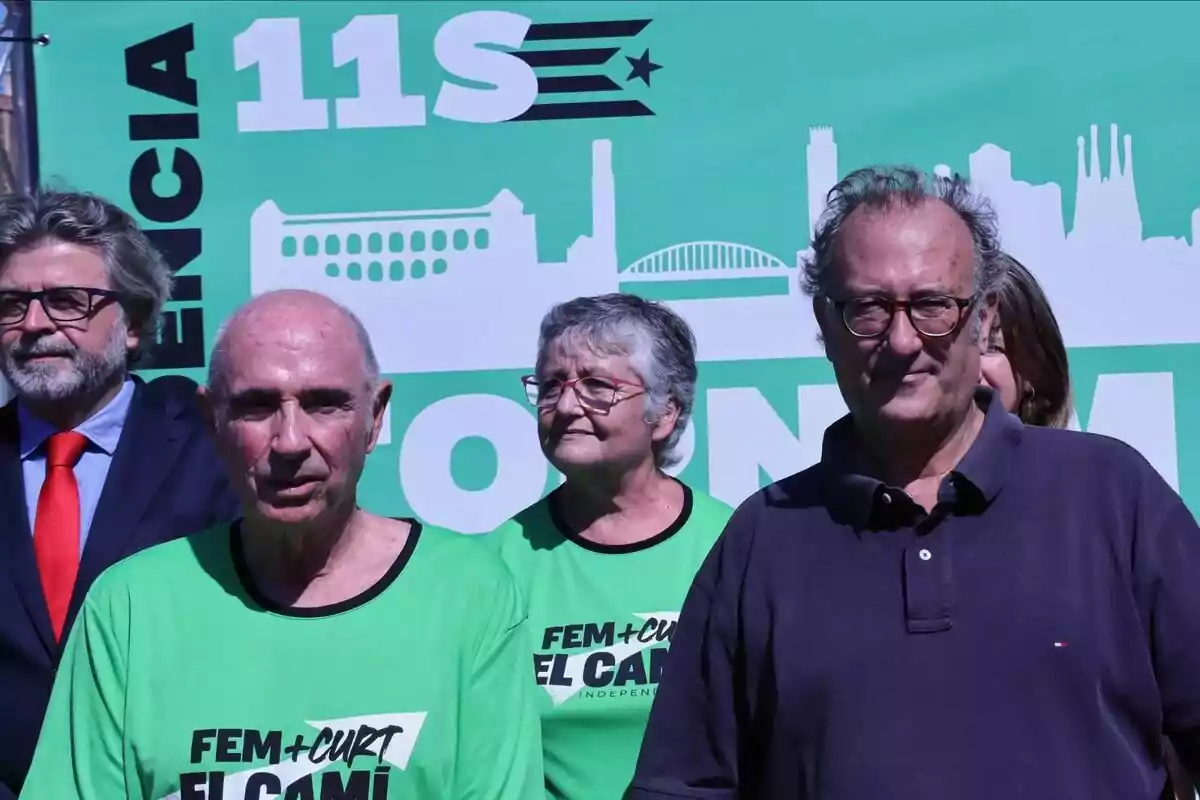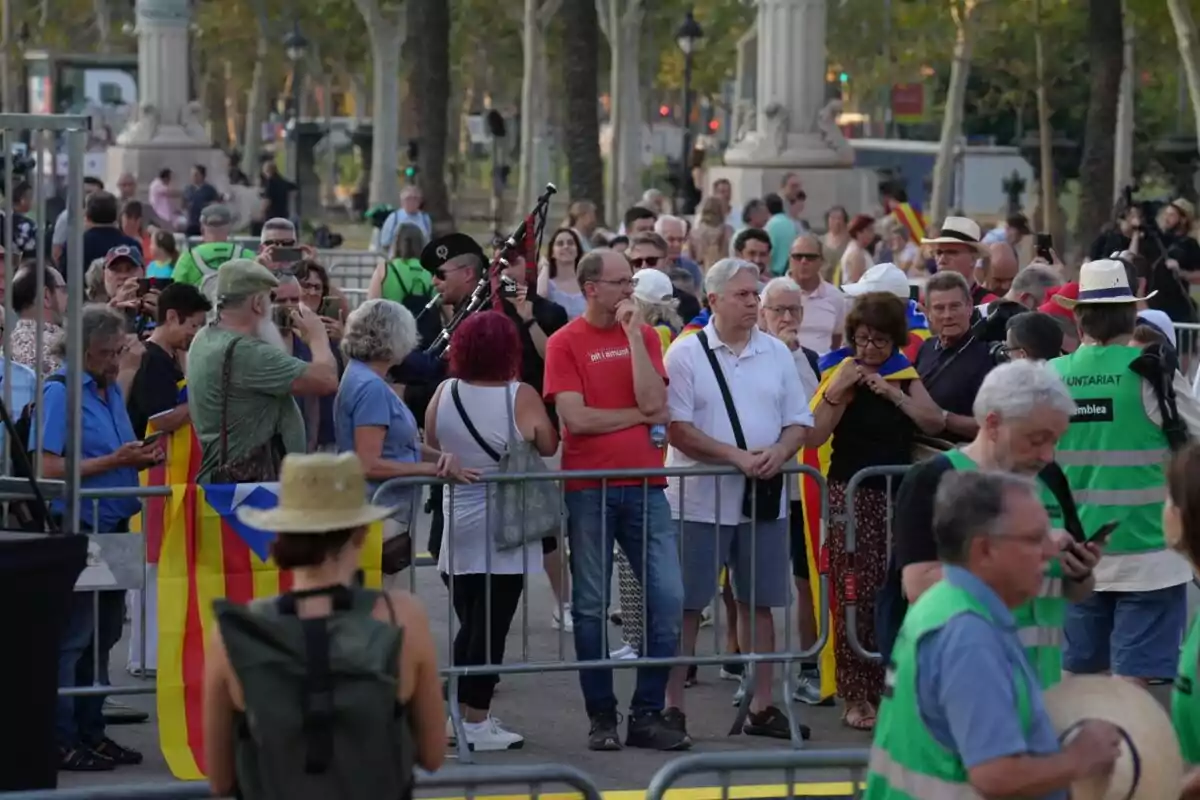
Criticism of Òmnium Cultural and ANC for wanting to exclude Aliança Catalana from the Diada
Procesismo doesn't abandon the dynamics of the past decade: Independence movement is more demobilized than ever
The main entities of Catalan separatism have announced that Aliança Catalana won't be welcome at the Diada demonstration on September 11. This decision has sparked an intense debate within the separatist movement. The exclusion, based on an alleged violation of democratic principles and human rights, has been driven by ANC and Òmnium Cultural, with support from other separatist organizations.
This year's Diada event will take place in a decentralized manner in three cities: Barcelona, Girona, and Tortosa. With the slogan "Now more than ever. Independence," the organizers aim to strengthen the (limited) social mobilization. However, this edition introduces a new participation criterion. The convening entities have stated that only political actors who share "democratic values" and "respect for human rights" will be welcome.
ANC president Lluís Llach has publicly stated that Aliança Catalana violates those rights, which, in his words, contradicts the democratic morality that should guide the movement. Meanwhile, Òmnium Cultural president Xavier Antich has argued that Diada should be a plural space without exclusionary discourse. Both leaders agree that Aliança Catalana doesn't represent the model of inclusive separatism they promote.

Criticism of separatist process
This stance has been harshly criticized on social media by separatist sectors who believe the movement is being fragmented. Numerous users have claimed that this exclusion shows the disconnect of entities like Òmnium and ANC from the new sociopolitical realities of the separatist movement. In the words of some internet users, "Diada is for all separatist supporters, regardless of their party."
The reactions reflect a growing division within Catalan separatism. Several comments have accused ANC and Òmnium of acting as an elite that claims the authority to decide who can participate. Others have criticized these organizations for not being able to adapt to the rise of groups like Aliança Catalana, which has gained significant support.
The exclusion marks a change from the previous year, when ANC wasn't so firm in its stance. Back then, Lluís Llach even said that "everyone would be welcome," although he expressed his displeasure with Aliança Catalana's political style. However, in 2024, the message has been clear: there won't be room for those who, according to the organizers, promote xenophobic or exclusionary messages.
Another failure on the horizon
This episode confirms the new scenario facing Catalan separatism. The emergence of parties like Aliança Catalana, with proposals and discourse that differ from traditional separatist process, is reshaping internal balances. For now, these balances aren't benefiting the famous "separatist unity."
All in all, this year's Diada is shaping up to be another failure amid the end of the separatist majority in Parliament. It's enough to analyze sociological data on support for nationalism to prove that, right now, it's a declining project. Meanwhile, ANC and Òmnium don't hesitate to bet on the past.
More posts: